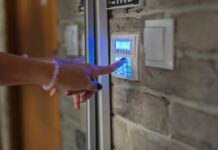One of the most prevalent threats in the cyber-world are hackers. They can cost you dearly in downtime and can put you and your business at risk of theft. To keep yourself and your business data safe, there are technologies you can put in place to shield your information and to keep your client data protected.
Virtual Private Network
A virtual private network, also known as a VPN, is a way to share encrypted information between computers as though you were functioning on a private network. Passwords are required to make sure that anyone logging into the VPN is authentic. A quality VPN service will verify each computer to access the network. Additionally, you can subscribe to a VPN service with a kill-switch. Any suspicious activity shuts down the network to avoid data loss.
Personal and Business VPNs
A quality VPN service will not be able to view your data or any information specific to your client. It provides an envelope in which your business can function safely by connecting with other verified computers. A VPN can be set up on your personal computer and is a good choice if you work remotely, especially if you choose to connect to public Wi-Fi services.
Two-Factor Authorization
Two-factor authorization is initiated when your client sets up an account. The client will need to create a password. In addition to the password, the client will likely need to enter a code that is sent by your VPN service to another device, such as a cell phone. Once your new client is able to verify who he or she is on both devices, the account is activated. Without such verification, the account setup can’t be completed. It’s generally advised that you should learn to protect yourself from cyber extortion. In addition to including this verification step during the initial setup, your clients will need to undergo this same process if they change their passwords.
Stay Vigilant
Hackers are always looking for new ways to tap into data. While two-factor authorization is a great start, the data you store online is vulnerable. The theft of a customer list can put you and your business at great legal risk. If you’re feeling suspicious of something, you’re probably correct in your thinking. It doesn’t hurt to look into something just to make sure it’s not the sign of a data breach.
Whether you’re an independent contractor or a business owner, shielding information is key to your job. Your clients deserve and should expect your discretion. If you travel, consider setting up a personal VPN. Be prepared to collect the data needed to set up a two-factor verification system.
For all the latest tech info, subscribe to our podcast!



















